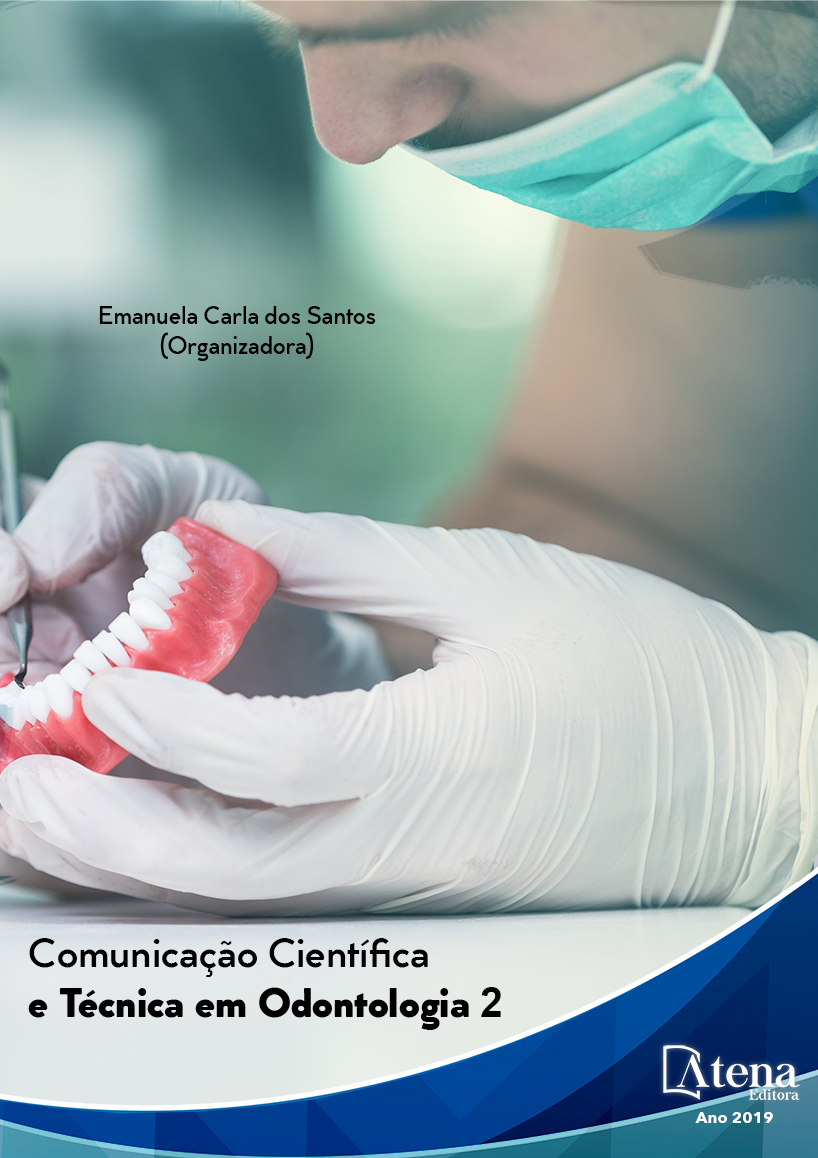
ESTUDO COMPARATIVO DO FLUXO, PH E CAPACIDADE TAMPÃO DA SALIVA EM CRIANÇAS COM SÍNDROME DE DOWN
Esta pesquisa analítica observacional
transversal avaliou comparativamente, alguns
parâmetros salivares, condição de saúde
sistêmica e uso de medicamentos por crianças
portadoras e não portadores de síndrome de
Down. Participaram da pesquisa 84 crianças de
6 a 12 anos divididos em 2 grupos, pareados
com relação a sexo e idade: CD- Criança com
Down (n=28; 13 F e 15 M) e; CC- Criança
Controle (n=56; 26 F e 30 M). Foram excluídas
do grupo CD, crianças que não conseguiram
coletar saliva, e do CC, crianças com doenças
sistêmicas e/ou faziam uso de medicamento.
Foi realizada a anamnese com o responsável e
o exame clínico da criança. A coleta e avaliações
da saliva foram realizadas no período da manhã.
Os dados foram tabulados no programa IBM
SPSS Statistics 24.0 para análise descritiva e
comparativa pelo t de Student, com nível de
significância de 5%. Das crianças do grupo CD,
57,14% eram portadoras de doenças sistêmicas
e 53,57% faziam uso de medicamento. O fluxo
salivar do grupo CD foi de 0,20mL±0,14 e, do
CC de 0,72mL±0,45 (p<0,001); o pH do grupo
CD foi de 7,35±0,46 e, do CC de 7,65±0,34
(p=0,001) e; a capacidade tampão da saliva
do grupo CD foi de 2,88±0,35 e, do CC de
2,78±0,25. Estes parâmetros salivares não
foram alterados pelo uso de medicamento e
doença sistêmica. As crianças com síndrome de
Down apresentaram pH e fluxo salivar menores
e o uso de medicamentos e as doenças
sistêmicas relatadas, não influenciaram nos
parâmetros salivares.
ESTUDO COMPARATIVO DO FLUXO, PH E CAPACIDADE TAMPÃO DA SALIVA EM CRIANÇAS COM SÍNDROME DE DOWN
-
DOI: 10.22533/at.ed.26519290312
-
Palavras-chave: Síndrome de Down; Saliva; Criança.
-
Keywords: Down Syndrome; Saliva; Child
-
Abstract:
This cross-sectional observational
research evaluated comparatively, some salivary parameters, systemic health
condition and medication use by children with and without Down syndrome. A total of
84 children aged 6-12 years divided into 2 groups, paired with respect to sex and age:
CD- Child with Down (n=28; 13 F and 15 M); CC- Control Child (n=56; 26 F and 30 M).
Children who were unable to collect saliva and CC, children with systemic diseases
and/or used medication were excluded from the CD group. Anamnesis was carried out
with the person in charge and the clinical examination of the child. Saliva collection
and evaluation were performed in the morning. The data were tabulated in the IBM
SPSS Statistics 24.0 program for descriptive and comparative analysis by Student t,
with a significance level of 5%. Of the children in the CD group, 57.14% had systemic
diseases and 53.57% used medication. The salivary flow of the CD group was 0.20mL
± 0.14 and the CC of 0.72mL ± 0.45 (p <0.001); the pH of the CD group was 7.35 ± 0.46
and of the CC of 7.65 ± 0.34 (p = 0.001) and; the buffer capacity of the saliva of the CD
group was 2.88 ± 0.35 and the CC of 2.78 ± 0.25. These salivary parameters were not
altered by the use of medication and systemic disease. Children with Down syndrome
had lower salivary pH and flow and the use of medications and the systemic diseases
reported did not influence the salivary parameters
-
Número de páginas: 15
- ANTÔNIO AUGUSTO GOMES
- ELÂINE CRISTINA VARGAS DADALTO
- LILIAN CITTY SARMENTO
- INGRID TIGRE RAMOS
- DAISE MOTHÉ DE LIMA
- ANA PAULA MARTINS GOMES
- Ana Maria Martins Gomes


